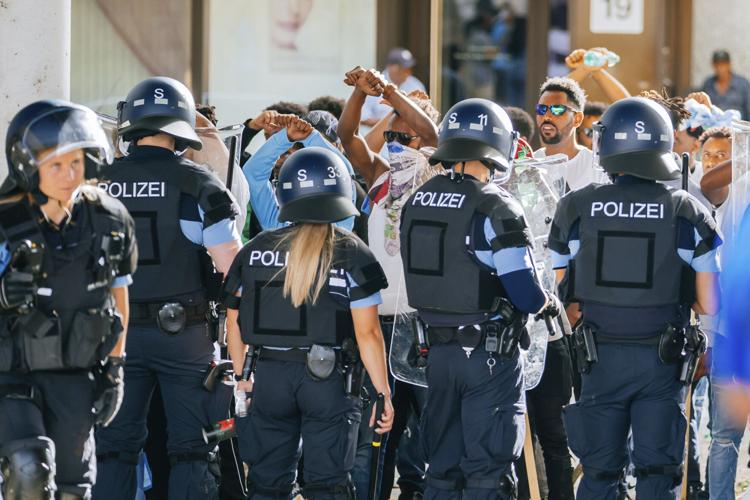More than two dozen police officers were injured in a riot during a cultural festival in Germany on Saturday (16 September) that broke out between supporters and opponents of Eritrean government, with experts saying that protests by the Eritrean diaspora highlight the repression at home and dividing lines abroad.
More than 200 Eritrean opposition supporters have been arrested in the southern city of Stuttgart after violence broke out during a cultural festival organized by the supporters of Eritrean President Isaias Afwerki, local police said. The event saw up to 90 Eritrea government supporters face off against several hundred opposition backers who refused to go to the site designated by authorities to hold the protest, police said. Nearly 300 law enforcement personnel deployed to the scene found themselves caught in “massive violence” between the two opposing groups, said Carsten Hofle, deputy police commissioner in Stuttgart. “Neither the intensity nor the extent of the violence was foreseen,” he said.
Saturday’s protests were the latest in a spate of unrest surrounding Eritrean cultural events in Germany and elsewhere. In July, a clash at an Eritrean festival in the western German city of Giessen left 22 police officers injured. In early September, Tel Aviv witnessed a fight between Eritrean government supporters and opponents that led to one of the most violent street confrontations among African asylum seekers and migrants in the Israeli city’s recent memory. Tens of thousands of people have fled Eritrea for Europe, many alleging they were mistreated by Isaias’s repressive government.
According to Yohannes Woldemariam, a US-based, Eritrean-born political science professor, “the divide between those born and raised in the diaspora and the newer arrivals who escaped the Eritrean government repression are becoming increasingly apparent.” He points out that the Eritreans protesting are traumatized survivors either of war, or the perilous trek across the Sahara, the Mediterranean, or torture in Sinai. Therefore, ”it is important that foreign governments like Israel understand the impossible situation of these diaspora Eritreans and support the struggle against the dictatorship or at least not become unwitting accomplices in repression,” Woldermariam says.
